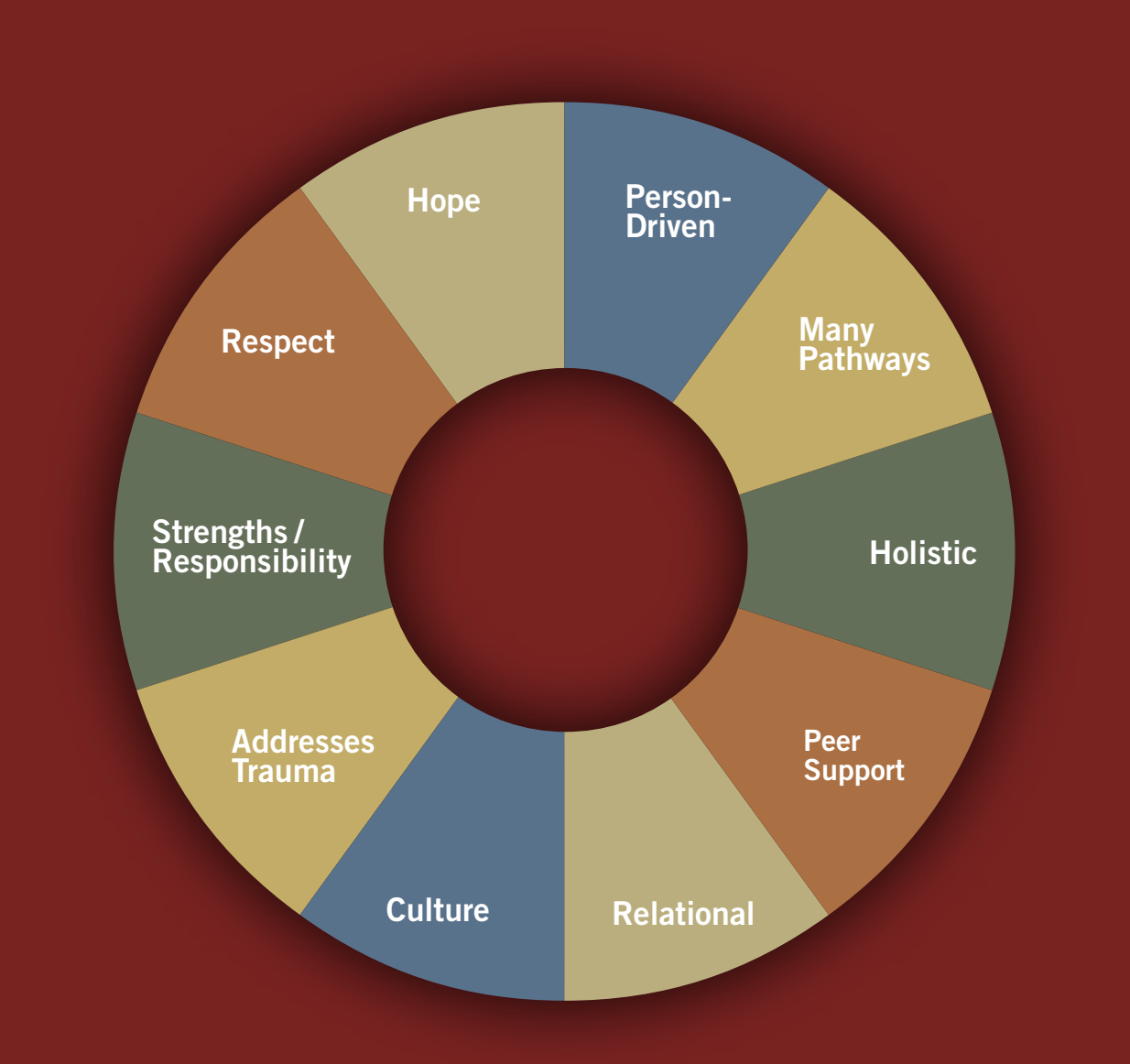Recovery as a Journey
Everyone's path to substance use recovery is unique.
Recovery includes actions that support health and well-being. These actions are:
- Attending peer support meetings
- Seeking treatment
- Connecting to community resources
- Building a supportive network
Your recovery will evolve as your circumstances change. Wherever you are in your journey, we are here to support you. A strong community and allies are essential for achieving long-term recovery.
The Substance Abuse and Mental Health Services Administration, or SAMHSA defines recovery with ten key principles to guide the process. Check out this short document to learn more about what recovery can look like for you or your loved ones.
Process of Change
Change can be scary
Change is a natural part of the recovery process, but it can feel intimidating. Adapting to new situations is tough. Being flexible is key for progress. Small changes in habits, thoughts, or feelings can have a big impact on your recovery.
Change is important
Positive thinking and overcoming roadblocks can change your perspective. They empower you to keep moving forward, even when things feel out of control.
Start today
Start making small changes today! Every step you take matters in your recovery journey. It affects you and your supporters.
"You have the power to change"

Person & Purpose Driven
People are unique and have unique needs
Recovery is unique to each individual. Your needs may be different from others. That's why recovery is tailored just for you. It's more than just beating substance use. It's about seeing what you've faced and all you've overcome.
There is a reason you’re here
Your journey in recovery is meaningful, and there's a reason you're on this path. Your reason to recover matters. It could be family, relationships, work, or personal strength.
Finding purpose and personhood
In recovery, discovering your purpose and embracing your personhood are essential. Your story is important. You deserve to thrive, face challenges, and live the life you want.

I'm here, I’m your resource, I can be your support. I can help you.” - IPN provider
Peer & Ally Supported

People are here for you, those who have real experience and those who believe your experience
One of the greatest benefits of recovery is building meaningful relationships. Whether with counselors, family, or peers, support is essential. Peer support comes from people with shared experiences. Allies provide understanding without judgement.
No judgment
You are not alone. The recovery community is here for you. They offer treatment, 12-step programs, and community-driven support. You won't be alone in your journey.
Genuine, reciprocal relationships
Recovery relationships are based on trust, empathy, and community, free from judgment. At times, you may feel isolated, but there are always people who understand and are ready to support you.

